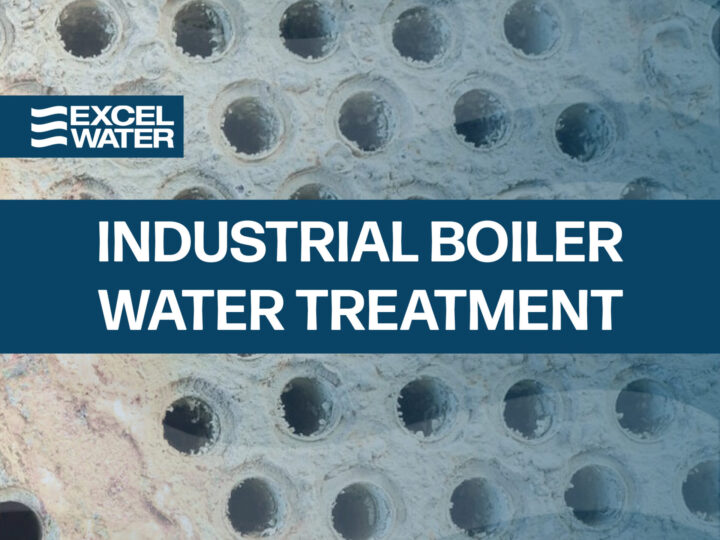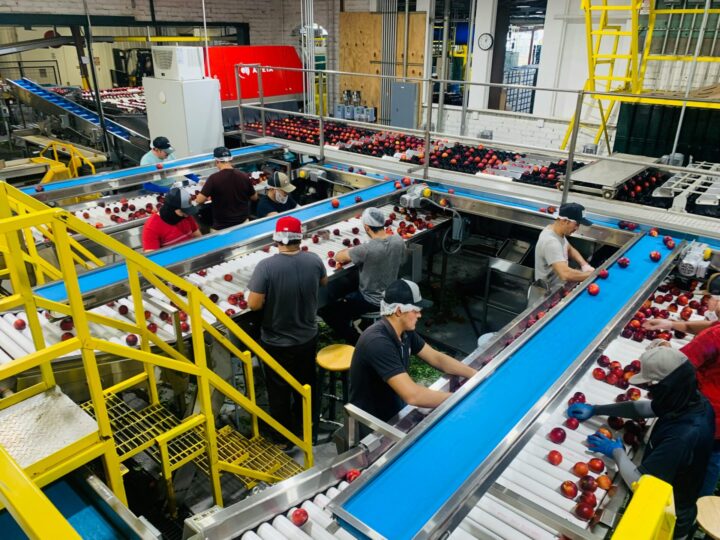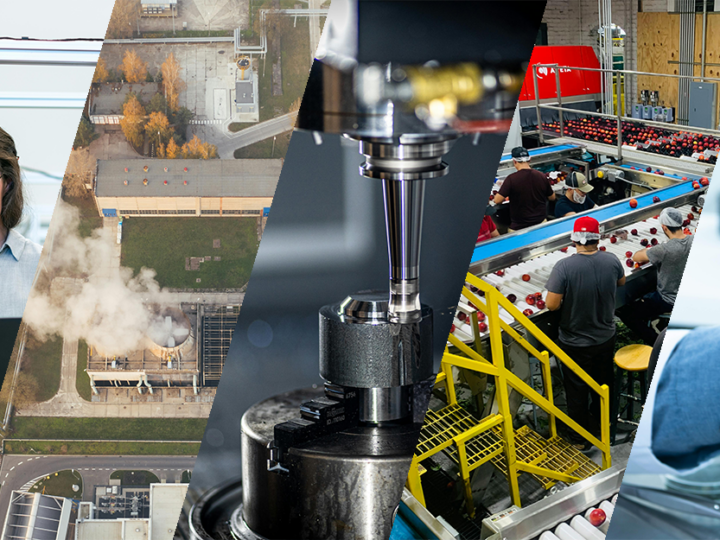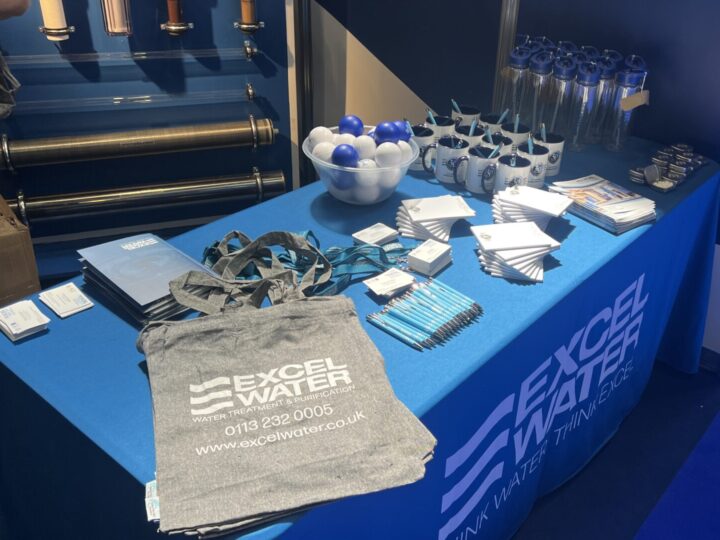
What You Need to Know About Industrial Boiler Water Treatment
David Fuller - 19th Sep 2024
Industrial boilers are critical to the smooth running of countless organisations across various sectors. Whether they’re powering production, sterilising equipment, or simply heating liquids, the proper functioning of these boilers is essential. One key aspect of maintaining their efficiency and longevity is industrial boiler water treatment. In this guide, we’ll walk you through the basics of industrial boiler water treatment, explaining why it’s necessary and how it benefits your business.
What Are Industrial Boilers Used For?
Industrial steam boilers play a pivotal role in many industries, serving a wide range of functions. They generate heat and steam that is used in various applications, such as:
- Heating liquids: Steam pipes are often used to heat oils, solvents, or other liquids, reducing their viscosity and making it easier to transport between tanks and tankers.
- Sterilisation: In many industries, steam boilers are essential for sterilising equipment, offering a chemical-free method to eliminate contaminants.
- Textile applications: Steam is often used for large-scale industrial ironing and fabric treatments.
In short, industrial boilers are a versatile tool across multiple sectors, ensuring operational efficiency and hygiene.
Common Types of Industrial Boilers
At Excel Water, we primarily work with two types of boilers:
- Fire tube boilers: These are common in many industrial settings due to their ability to produce large volumes of steam. However, they take longer to heat up from cold, which can be a drawback for some businesses.
- Coil (or “once-through”) boilers: These are much smaller and can generate steam very quickly. They are ideal for operations that require rapid start-up times but don’t need the same steam tonnage as a fire tube boiler.
Why is Industrial Boiler Water Treatment Necessary?
Whenever water and metal come into contact, corrosion becomes a risk. Left untreated, the water used in industrial boilers can cause significant damage to the internal surfaces of the boiler. This is where water treatment comes in – protecting your equipment from corrosion, prolonging its life, and ensuring efficient performance.
What is Boiler Pre-Treatment?
Before water even enters the boiler, it needs to be properly treated. This process is called boiler pre-treatment, and it prepares the water for safe and efficient use in the system.
The most common form of pre-treatment is the use of a water softener. This device removes hard minerals from the water, preventing the build-up of scale on boiler components. In some cases, additional equipment like a de-alkalisation plant may be necessary if the water contains high levels of alkalinity.
For high-output boilers, reverse osmosis (RO) units can be an excellent option. These systems reduce the total dissolved solids (TDS) in the water, which in turn minimises the need for frequent blowdowns—saving energy and reducing chemical costs.
What Does Industrial Boiler Water Treatment Involve?
Once pre-treated water enters the boiler, it still requires chemical treatment to maintain the right water chemistry. Typically, this treatment is added between the hot-well and the boiler and is dosed based on the boiler’s feed pump operations.
Here’s what’s involved in a typical boiler water treatment programme:
- Alkalinity builder: This raises the pH of the water, reducing the risk of corrosion.
- Oxygen scavenger: Oxygen in the water can cause pitting, a severe form of corrosion. An oxygen scavenger removes dissolved oxygen, preventing this damage.
- Hardness inhibitor: Even with a water softener in place, this chemical provides an extra layer of protection in case of pre-treatment failure.
- Additional chemicals: Depending on your boiler’s needs, biocides and anti-foaming agents may also be added.
Every boiler system is unique, so the exact chemical mix and dosing rates will vary.
Who Handles Boiler Water Treatment?
Pre-treatment systems, such as water softeners, are usually installed as part of a new boiler package. Day-to-day monitoring of water hardness and salt levels for regenerating the softener is typically managed by on-site staff. These checks only take a few minutes, but they are crucial to maintaining optimal boiler performance.
On a monthly basis, a water treatment engineer will visit to carry out more thorough tests on both the feed and boiler water. These visits help to adjust chemical dosages and ensure the system is running efficiently. At Excel Water, we offer monthly service contracts that include routine testing and servicing of pre-treatment equipment, ensuring that everything is running smoothly and giving you peace of mind.
Why Is Boiler Water Treatment Essential?
Proper water treatment is crucial because it minimises corrosion, scaling, and other issues that could shorten the lifespan of your boiler. Without the right treatment, your boiler’s efficiency will drop, operating costs will rise, and you risk expensive breakdowns. In the long term, investing in water treatment will save your business from costly repairs and downtime.
What Happens if the Wrong Pre-Treatment Is Used?
Using incorrect or inadequate pre-treatment can lead to serious problems. For instance, if a de-alkalisation plant is required but not installed, the water’s chemistry will be off-balance, making it much harder to maintain correct chemical dosages. This could lead to over- or under-dosing, which in turn causes corrosion or scaling.
Incorrectly sized pre-treatment equipment can also cause issues, as it won’t work effectively for the required volume of water. This can result in fluctuating water chemistry and a higher risk of damage to the boiler.
The Costs of Getting It Wrong
The biggest cost of incorrect treatment is downtime. If your boiler stops working, production halts. And when it comes to repairs, industrial boiler fixes don’t come cheap. Retubing a fire tube boiler, for example, can be a costly procedure. By contrast, regular treatment and maintenance are an investment in the longevity of your boiler and the efficiency of your operations.
How Do You Choose the Right Pre-Treatment?
At Excel Water, we start by testing the raw water for pH, alkalinity, TDS, and iron levels. From there, we can determine what pre-treatment equipment is needed to protect your boiler. We also monitor the water inside the boiler to check for any excess or deficiency of chemicals, allowing us to fine-tune the treatment process as needed.
Final Thoughts
Boiler water treatment may seem like a complex science, but with the right approach and expert guidance, it becomes a straightforward part of your maintenance routine. It’s an investment in the reliability and efficiency of your equipment—and one that pays off in reduced downtime, fewer repairs, and long-term savings.
At Excel Water, we offer tailored boiler water treatment packages to suit your business’s specific needs. Contact us today at 0113 232 0005 or email sales@excelwater.co.uk to discuss how we can help keep your boilers running at their best.
Back to Latest News




